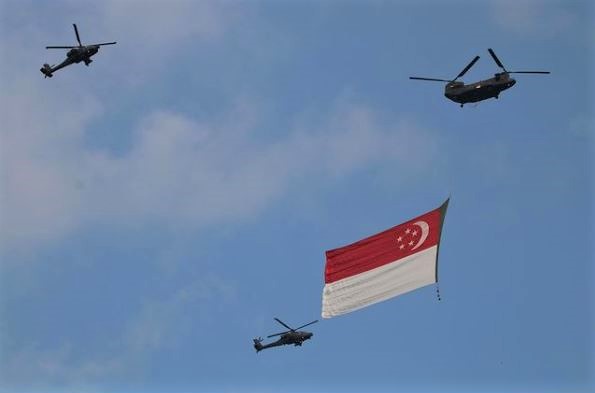Introduction
Every year, Singaporeans celebrate the 9th of August, also known as “Singapore National Day,” in honour of their independence.
On this 9th of August, it can be argued that there is nothing more Singaporean than multiculturalism. Its geographic position between two great oceans, between East and West, further reinforces this fact. In today’s article, we will be discussing the multiculturalism of Singapore.
We will be discussing the various ethnic groups in Singapore, key statistics, history as Singaporeans, and unique cultures, traditions, in addition governmental policies that help facilitate this multiculturalism, including meritocracy, the foundation of multiculturalism and Singaporean society.
Chinese-Singaporeans
According to the Singapore Department of Statistics, the ethnic-Chinese make up 74.3% of the population in 2021. Cultural and trade exchanges between China and Singapore date back to the 3rd Century. Chinese traders would frequent the island but would have a more permanent presence in the 14th Century, when Singapore cemented itself as a key port in the region, states Visit Singapore.
The ethnic Chinese in modern day Singapore come from widely different backgrounds and cultures. Most come from Southern Chinese regions such as Fujian and Guangdong. However, according to Visit Singapore, as a testament to their diversity, Hokkien, Teochew, Cantonese, and Hainanese dialects, among other Chinese dialects, are spoken in China.
While distinct Chinese identities are now arguably a rarity, owing to the inter-mixing between Chinese groups and between ethnic Chinese and non-ethnic Chinese Singaporeans, among the most celebrated and recognisable Chinese traditions in Singapore is Chinese New Year.
Malay-Singaporeans
According to the Singapore Department of Statistics, the ethnic-Malays make up 13.7% of the population in 2021. Visit Singapore writes that Malays were among the earliest settlers in the region, as evidenced by 3rd Century Ancient Chinese records which used an appropriated version of the then Malay name for the Singaporean islands.
Malay influence in early Singaporean society was further strengthened with the 14th Century legend which tells of the establishment of a city on the island by a Prince of the Srivijaya Empire based in modern-day Palembang. According to Visit Singapore, modern ethnic Malays originally arrived in Singapore from areas on the Malayan peninsula, including modern-day Sumatra, Java, and Bawean.
The Malay language spoken in Singapore more closely resembles Malay spoken in modern-day Malaysia than Indonesia. Moreover, most Malays are Muslim and, as a result, among Malay’s most celebrated and recognisable traditions include Eid al-Adha (Day of Sacrifice) and Eid al-Fitr (Day of Celebration following Rhamadan Fasting).
Indian-Singaporeans
According to the Singapore Department of Statistics, the ethnic-Indians make up 8.9% of the population in 2021. Ethnic Indians in Singapore can potentially trace their history back to the early 19th Century.
British Colonialists such as Sir Stamford Raffles arrived from India and established a settlement on the island in 1819, writes Visit Singapore. However, to note, approximately 60% of ethnic Indians in Singapore are of Tamil ancestry, though Singapore’s Indian community is arguably its most diverse. A further 50% of ethnic Indians are practising Hindus.
Visit Singapore adds, “Indian festivals here are colourful, upbeat affairs. Deepavali, or the Festival of Lights, is the main Indian festival, while Thaipusam, where devotees pierce themselves in an act of cleansing, is a fascinating spectacle.”
Other Singaporeans
According to the Singapore Department of Statistics, other ethnicities make up 3.2% of the population in 2021. Among these other ethnicities include Eurasians (descendents of British, Dutch, or Portuguese colonists who then intermarried with locals). “The Eurasians in Singapore epitomise the city’s vibrant east meets west vibe,” writes Visit Singapore.
Peranakans are another ethnicity that make up Singaporean society. Peranakans are descendents of the first wave of Chinese immigrants from hundreds of years ago who then likely inter-married while retaining their own unique cultural heritage and traditions. Many Peranakans were descendents of Chinese immigrants who intermarried with Malays, Indian Hindus, and Indian Muslims.
Governing a Multicultural Society
Ethnic relations in Singapore now and ethnic relations in the past differed greatly. Early modern Singapore, under Sir Thomas Stamford Raffles, saw ethnic segregation become the norm in 1822. Visit Singapore writes this was the result of increasing ethnic tensions in the newly established trading post. Interestingly, its strategic location as a trading post helped attract the diverse peoples to settle.
This system would be more or less untouched until the 1960s when the Lee Kuan Yew Administration began urban resettlement programmes. Former segregated enclaves were demolished and replaced with new multi-storied public housing. The programmes necessitated all ethnicities to live amongst one another, as opposed to segregated enclaves, and to familiarise the ethnicities with one another. Therefore, the Government saw it appropriate to have English be its main official language.
The US Library of Congress adds that at the core of Singapore’s multicultural society is its meritocracy. Social programmes developed to foster equal opportunities for all ethnicities (e.g., Public housing investment, public education investment, etc.) ensured citizens, regardless of ethnicity, would start at a level playing field, and be able to grow should they choose to work hard.
Conclusion
Cultivating a multicultural and meritocratic society is no easy feat. Singapore’s ability to foster a multicultural, as well as a meritocratic, society, embedding both tenants into everyday life, is commendable.
It is these cultural tenants that make Singapore an attractive business destination for many companies, especially in the West. If you or your company are interested in expanding business and/or production to Singapore, Central Midori is ready to help with all your needs.

